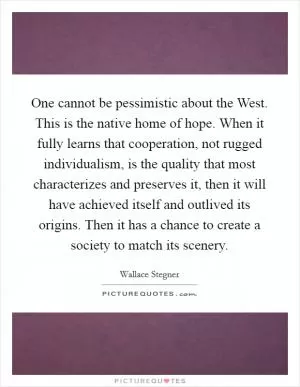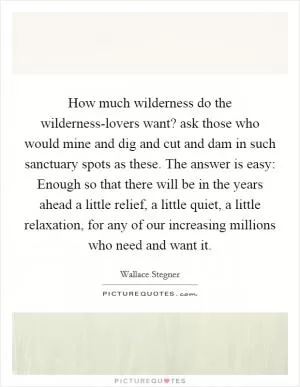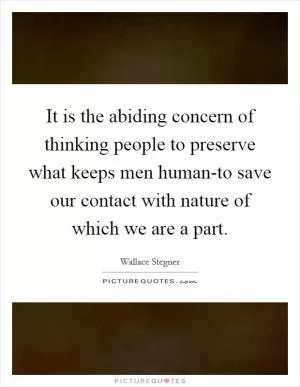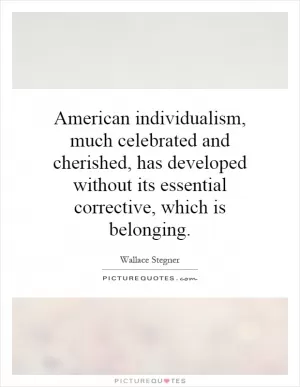Wherever you find the greatest good, you will find the greatest evil, because evil loves paradise as much as good

Wherever you find the greatest good, you will find the greatest evil, because evil loves paradise as much as good
Wallace Stegner, a renowned American writer and environmentalist, often explored the complexities of human nature and the duality of good and evil in his works. The quote, “Wherever you find the greatest good, you will find the greatest evil, because evil loves paradise as much as good,” encapsulates Stegner’s belief that the presence of good is often accompanied by the presence of evil.Stegner’s novels often depict characters who are faced with moral dilemmas and must navigate the blurred lines between right and wrong. In his Pulitzer Prize-winning novel, “Angle of Repose,” Stegner explores the themes of betrayal, forgiveness, and redemption. The protagonist, Lyman Ward, grapples with the complexities of human relationships and the consequences of both good and evil actions. Through Ward’s journey, Stegner illustrates how the pursuit of good can sometimes lead to unintended consequences and the emergence of evil.
Stegner’s environmentalist beliefs also play a significant role in his exploration of the duality of good and evil. In his novel “Beyond the Hundredth Meridian,” Stegner chronicles the life of John Wesley Powell, a pioneering explorer and conservationist who sought to protect the natural beauty of the American West. Powell’s efforts to preserve the land from exploitation and destruction are met with resistance from those who seek to profit from its resources. Stegner highlights the inherent conflict between good intentions and the forces of greed and destruction, illustrating how evil can thrive in the midst of paradise.
Stegner’s quote suggests that the presence of good can attract evil, as those who seek to disrupt harmony and sow discord are drawn to places of peace and prosperity. This concept is echoed in Stegner’s own life, as he was a vocal advocate for environmental conservation and social justice, often facing opposition from those who sought to exploit the land for profit. Despite the challenges he faced, Stegner remained committed to his beliefs and continued to fight for the preservation of the natural world.












 Friendship Quotes
Friendship Quotes Love Quotes
Love Quotes Life Quotes
Life Quotes Funny Quotes
Funny Quotes Motivational Quotes
Motivational Quotes Inspirational Quotes
Inspirational Quotes